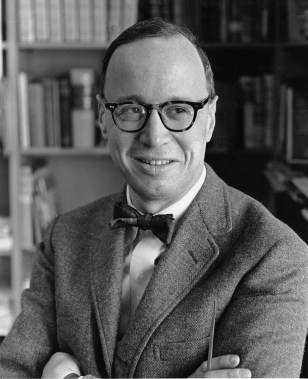 |
| Media Image |
The Letters of Arthur J. Schlesinger, Jr. (First
Edition, Random House, 2013.)
Occasionally a book comes along that is in a different
format formally than most others and readers, especially those in the area of
current events and history will like the recent compilation of Arthur J.
Schlesinger’s letters and related commentary that reads like the “Who’s Who” of
the liberal party in the U.S. in addition to offering events and editorials,
personal and public, in the recent history of that party, and for the reading
public at this point. The authors,
themselves named Schlesinger, went searching for things in the New York Public
Library and found approximately 35 , 000 letters and materials including notes,
essays, other personal papers and the like.
There are apparently thousands of other letters of Schlesinger outside
the New York Public library in people’s files and elsewhere which testify to
the prolific character of this liberal and presidential adviser and
confidant. The “Who’s Who” of liberal
society in the States for some time after WWII did come from the Ivy League,
notably Harvard and the related crowd that due to the confluence of events and
success factors at the time, politically, administratively and economically,
etc., these historical figures, larger than life as they were in their academic
achievements and more so in what they accomplished once given the reins of
power, call for and are portrayed in a very high – impact prose in the letters
as shown and in the corresponding editorials and opinions associated with the
letters. None of Schlesinger’s notes to
anyone, and he had many high – powered, very accomplished friends and fellow –
advisors and officials and other associates; proved to be more than a few
pages. The text also has a formal
picture or two with him at his typewriter that appeared to start out as a
Remington manual machine as was often the case in the days for journalists, and
then that developed into the apparently more modern one as time passed.
The entirety of the text shows probably several hundred of
his best correspondence to the Kennedys, Dean Acheson, Harry Truman, Averill
Harriman, and the list goes on and on of major people in the day. Mr. Schlesinger died in 2007 and was still
writing at the time. Throughout the
text, the prose he set down is thrilling to read and the book a page – turner –
the letters themselves have a hopeful mood and attitude, and his coverage of
people’s lives in these indicates the early emphasis of U.S. politics as it
developed after WWII, again, as increasingly oriented, however silently, to
foreign policy; and for instance to the fate of places like Israel, Berlin, T’aiwan,
and others. Naturally, liberal people
are more oriented to things like foreign policy and world society, and
especially during the 1950’s onward, and even up to today, U.S. influence,
political power and even outright controlling of circumstances, and conditions
outside the country is the banter of the day in these circles. Same had been true of the leftist / communist
capitals since some time ago, and this brought out the hefty anti – communism even
of the most liberal U.S. high officialdom at the time. As much is evident the perception that
communism, and this even more so during the Kennedy polity, and its dangers,
realized and materialized for free and democratic countries the kind of
backward form of oppression that it was known for in the States while at some
times in its detail giving cause for the uninformed to suspend belief. It is obvious as well from the text that Mr.
Schlesinger knew lives of well – educated, humble and very capable people were
spent on this, if not set completely adrift for the duration given what happened
in the day, especially for example to those who were knowledgeable and action,
reform, and anti – communist – oriented, but who were cut to the quick by the
communist device of calling the opposition, even the left opposition behind the
Iron Curtain incapable and too lightweight.
The telling drinking bouts of the then soviet leadership at the time are
evidence of this though the author does not speak of these.
The text is written in its commentary and editorials on the
correspondence therein by two very cogent and inspiring people themselves in
the way they chose the notes and presented them with comments and richly
referenced as well, might I add. The
journalistic style of the book is intimate in every way as the author knew the
subject matter “growing up” as even, and this is my guess, these so – called journalists
knew at their adolescent years they would make history, that they were different
and more capable and genial and “can – do” than their contemporaries – as a
result of this, they were journalists, but might have completely avoided the
daily television news and daily papers (this is just a guess, but the nature
and detail of the letters in the text lends credence to it). Directly and indirectly as well, the book is
a history of the liberal polity in the States starting in the 1950’s right up
to today in great part. Really a great
read.
No comments:
Post a Comment